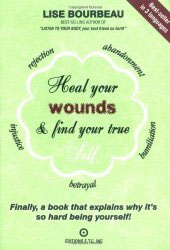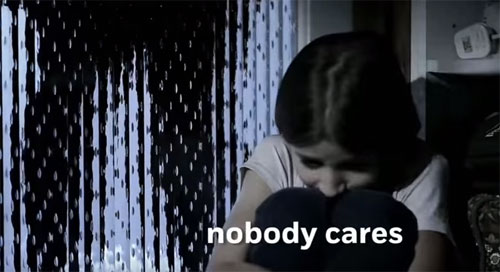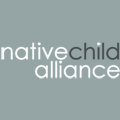The childhood wounds still open again in adulthood!
 It was nice to be good and responsible adults, we all have our faults, our limitations, our blocks. And we read the well-being and personal development books, we do yoga, it is converted to Buddhism or we go see a shrink, these limitations are related to childhood injuries .
It was nice to be good and responsible adults, we all have our faults, our limitations, our blocks. And we read the well-being and personal development books, we do yoga, it is converted to Buddhism or we go see a shrink, these limitations are related to childhood injuries .
In any case Lisa Bourbeau’s assertions in his book The five injuries that prevent him from being himself.
Betrayal, humiliation, mistrust, abandonment, injustice … These emotional wounds are hidden deep within us for many years and it is because of them that we can not exploit our potential. Here is a small guide to recognize and perhaps appease them. Finally.
1. The fear of being abandoned
The child too lonely and isolated adult who becomes a fear of abandonment.
For a child, there is nothing worse than feeling alone and not sufficiently protected in the first years of his life in a world he does not know and he does not understand very well. As an adult, he is afraid to relive this pain, this abandonment. So he prefers to be the one who gives up first. In general, this is an unstable person, who is struggling to complete its projects and to be reliable in long term relationships.

These people must understand what makes them so scared and used to love the other. Accept physical contact, hugs. One of the techniques can also be accepting his solitude to understand that it is not an enemy. This allows to find the world and others with newfound confidence.
2. Fear of rejection wipe
The child who was told not his childhood becomes an adult who is afraid to accept his feelings.
Even when we are children, we have the right to be right sometimes. To face “no” all the time (especially on the part of parents and relatives) creates adults who do not trust them. They tend to devalue, to have fairly low opinion of themselves. These are people who often isolate themselves because they do not understand why they deserve the affection or attention. They tend to panic, especially when you ask them their opinion or to speak in public.
To overcome this injury, we must dare to challenge themselves, to take major decisions, such as starting a new job, live alone. Other lost count, learn to faires choices for you and only for you!
3. Humiliation
The child has suffered humiliation in the early years often becomes an adult who has a hard time falling in love.
The sense of humiliation among children can take lots of forms: tell a little boy or a little girl he did everything wrong, it’s annoying, awkward or nasty example. Upbraid him in front of other people. Compare with other children who would be “more this” or “that more” than himself. These humiliations destroy the child’s esteem and make a dependent adult who need the advice of others to feel alive. This can also cause nasty and selfish people who behave like this only because of a defense mechanism, never to be humiliated!
To break away from these bad habits, it is advisable to address their needs and fears, but also on the notion of freedom. Free of others. Royalty its own determinism. Free to be who we want to be without limit.
4. Fear of trusting (and betrayal)
Children who have experienced betrayal in their youth become suspicious and negative adults.
It is never good to make promises to a child and not to take them. Even inventing excuses to justify the child understands the deception. As an adult, the feeling of mistrust does not diminish, on the contrary, the adult world is not always very honest. Betrayed children are insecure and suspicious of them adults who never believe deserve what they get. These are also people rather negative and perfectionists who want to control everything and that can be very authoritarian and domineering.
To turn the tide, we must learn not to want to control everything. How ? By being tolerant, patient and above all, very respectful of others and their opinions. Also learn to be alone and do nothing, this opens the mind.
5. The sense of injustice
Children who had the impression of living injustices become adults who want to be very important and have great power.
The children who were asking too much and feel they will never be up to the requirements requested develop a sense of worthlessness, inefficiency. Growing up, they can become rigid and extremely demanding in turn. They can become downright fanatical of the order and power, convinced that they must become important to make decisions. But they can also take extreme and irrational decisions.
To fight against these abuses, we must do work on self and the feeling of suspicion and mental rigidity. Learn to be flexible. Learn to be a simple man. Learn to trust others. Your life you seem much simpler, at once!
It leaves the last word to Lisa Bourbeau:
The first step is to accept that injuries are part of us, to give us permission to annoy us and, above all, to give us time to overcome them.

